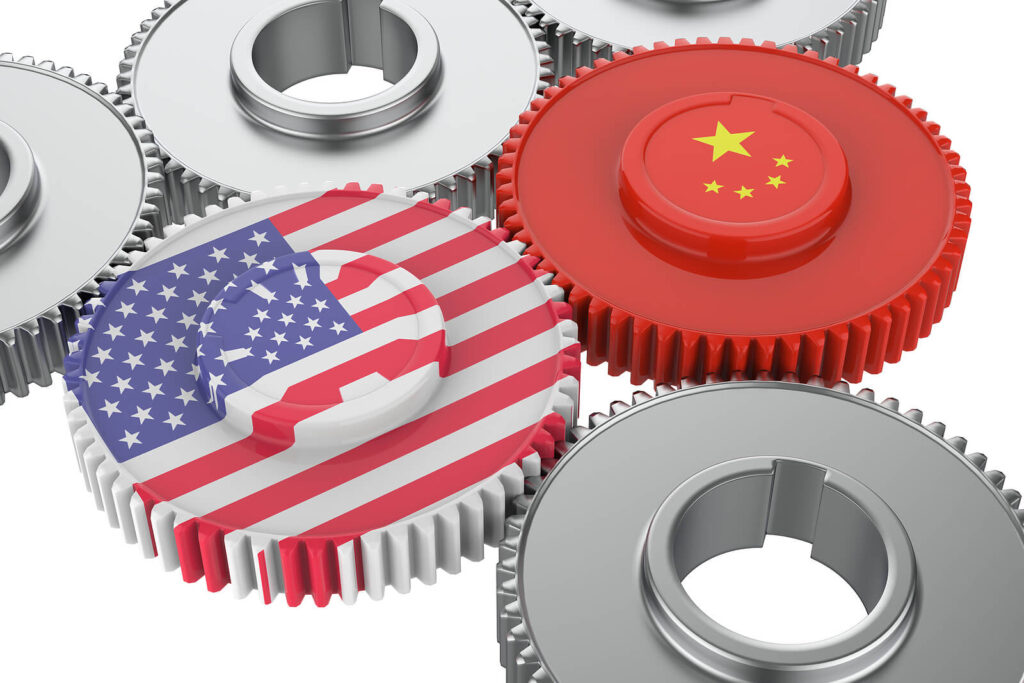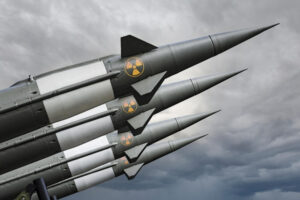Bellicose rhetoric from the U.S. against China is on the rise.
Last month, a four-star Air Force general sent a memo to the officers he commands predicting the U.S. will be at war with China in 2025. Consequently, he ordered his subordinate commanders to report back to him on all major efforts to prepare for war with China by the end of this month. Not to be outdone, a top Republican in the U.S. Congress said last month that the odds of conflict with China over Taiwan “are very high.”
And not long ago, to support his plea that Army land forces maintain their budget levels in the ongoing defense budget fight, a U.S. Army general quoted a senior Chinese officer who proclaimed that war with the U.S. was inevitable.
One rarely sees this level of clairvoyance from senior U.S. military and civilian officials. Like Babe Ruth pointing his bat to center field indicating where he intends to hit a homer. If senior officials keep beating this drum, we very well could have a war with China. But it doesn’t have to be that way.
A major part of the problem is that when assessing the threat from a potential foe, many national security officials only look at the correlation of military forces, which can convey a false picture of national strength. One only has to look at the pitiful performance of the Russian Army in the Ukraine conflict to understand how large forces on paper don’t guarantee military victory.
China is less of a threat when considering other elements.
The U.S. must consider all the elements of China’s national power, not just military capability. Population demographics, the state of the economy, the quality of national leadership, world standing that impacts the effectiveness of diplomatic initiatives and the number and quality of its allies, to name several.
In the case of China’s domestic situation, the country has serious internal weaknesses such as significant social unrest, which doesn’t make the news much outside China. Also, China is threatened by a major demographic problem stemming from the “one child” policy it followed for decades that some analysts consider a demographic crisis leading to significant national decline.
Add in a growing middle class wanting more freedom from an oppressive political system and declining economy that cannot deliver what they want, and in some regards President Xi is riding a tiger.
The relationship with China is one of the biggest foreign policy challenges facing the U.S., but if our approach is guided by wise diplomacy and specific actions necessary to confront their acts of economic and territorial aggression, then war need not be inevitable.
We have interests that are in conflict, but we also share some interests, such as avoiding a major military confrontation, which would be a disaster for everyone.
A calmer, more focused approach to China
The approach to China should take several tacks.
First, we must continue to re-domesticate some of our critical supply chains, such as pharmaceuticals, which have become too dependent on Chinese production. In particular, we need to diversify selected parts of our national security trade away from China, some of which is happening already, such as increasing U.S. semiconductor capacity. Due to new incentives, about a half dozen companies have already announced construction of new facilities to bring chips manufacturing back to U.S. shores.
Second, we need to step up work with allies in Asia and Europe who share similar problems with China to develop a united front for our policies. China is bordered by 14 countries, none of which could be described as allies. The U.S., on the other hand, has numerous security arrangements with key allies near China — Japan, South Korea and India, to name a few.
Third, we need to make our intent clear and approach China with honest efforts to work together where our interests coincide but push back intelligently and responsibly when China becomes overly aggressive. Taiwan is a key example. We should curtail the war rhetoric by U.S. officials while providing Taiwan the specific capabilities it would need to make the costs of a Chinese invasion prohibitive and thus raise the specter of the Russian Ukraine debacle.
Reducing the tension over Taiwan would do much to make the overall relationship more stable. U.S. policy remains centered on the one China policy, which is de facto recognition that U.S. relations with Taiwan must remain “unofficial.” But under the Taiwan Relations Act the U.S. maintains the right to help Taiwan improve its self-defense capabilities.
Focusing primarily on China’s military capabilities matters because it can create a self-fulfilling prophecy. When one side predicts or expects something to happen, and takes action based on those expectations, the other side is driven to take more of the expected actions. In international relations, this is called the Thucydides Trap, a term popularized by Graham Allison, the Harvard professor and former Department of Defense official.
Thucydides, an Athenian historian and general, in his history of the Peloponnesian War between Sparta and Athens, concluded it was the rise of Athens and the fear this instilled in Sparta that made war inevitable.
China has serious domestic issues and simple portrayals of it as an overwhelming force are misleading and cause many to overlook China’s many weaknesses. We have real issues we must resolve with China, but there is no need to rush towards war.







